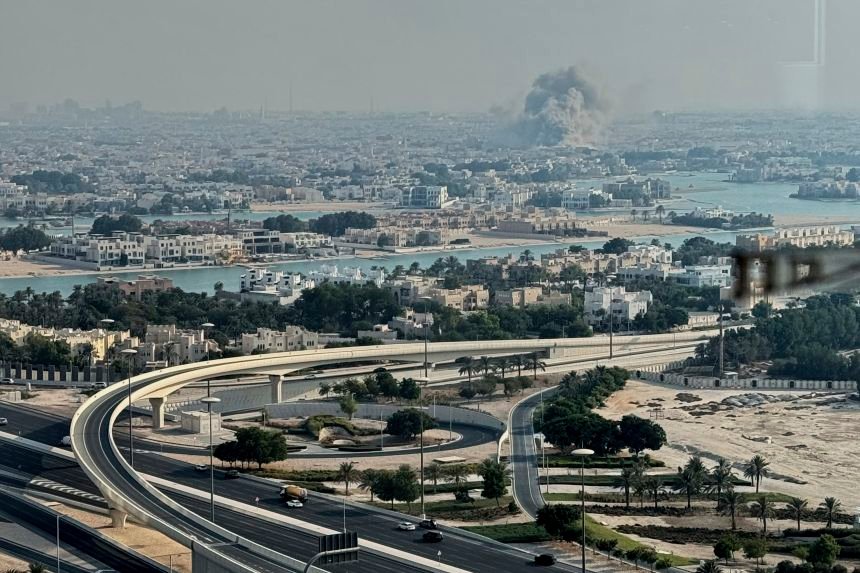In a dramatic escalation of the Middle East conflict, Israel launched an unprecedented airstrike on Doha, Qatar, targeting Hamas political leaders. The attack, carried out on September 9, 2025, has drawn swift international condemnation and raised concerns over regional stability. While Israel called it a precise strike against Hamas leadership, Doha and many global actors denounced it as a breach of sovereignty and a threat to ceasefire negotiations.
Background and Context of the Israeli Airstrike on Qatar
On September 9, 2025, Israel executed Operation Summit of Fire, deploying approximately 10 missiles from fighter jets to strike a residential complex in Doha’s diplomatic West Bay Lagoon district—home to Hamas leadership gathering for ceasefire discussions. The targeted individuals included senior figures such as Khalil al-Hayya and Zaher Jabarin, though reports indicate they survived. Tragically, six people were killed: al-Hayya’s son Humam, his office director, three bodyguards, and a Qatari security official.
This marks the first time Israel has ever conducted a strike within Qatari territory—a significant shift in the regional conflict. Qatar has served as a key mediator between Hamas and other parties in the Gaza conflict. The strike jeopardizes its role and risks unraveling fragile ceasefire talks.
International Reactions and Diplomatic Fallout
The response has been swift and condemnatory. Qatar called the strike a “blatant violation” of its sovereignty and international law, asserting its right to respond accordingly. Germany declared the attack “unacceptable,” citing its negative impact on peace efforts and sovereignty norms. The United Kingdom, through Prime Minister Keir Starmer, condemned the strike and reaffirmed the need for ceasefire and humanitarian support. Russia labeled the action a “gross violation” of the UN Charter and warned of escalating regional instability.
U.S. President Donald Trump expressed dismay, saying he was “very unhappy” with the strike, though he acknowledged the goal of targeting Hamas was justified. While the White House said it had been informed in advance, it did not support the strike, and stated that such an operation “does not advance Israel’s or America’s goals.”
Analysis: Impact on Ceasefire Talks and Regional Stability
This unilateral strike severely undermines diplomatic efforts in the region. Qatar’s role as mediator is jeopardized, and ceasefire talks may collapse under mounting mistrust. Intelligence analysts and policy experts warn that Israel’s willingness to target mediators signals a dangerous escalation.
The Council on Foreign Relations stressed that the attack threatens the ceasefire process and broader relationship with Gulf states. The Arab Center in Washington characterized the strike as a symbolic assault on diplomacy itself, designed to notify that no forum is off-limits—even mediation efforts.
Conclusion and Future Outlook
Israel’s airstrike on Doha not only shattered a long-standing regional boundary—it also signaled a breakdown in the norms of diplomatic engagement. As mediators lose faith, the prospects for a negotiated ceasefire diminish. Countries like Saudi Arabia, Egypt, and Jordan, crucial in broader peace efforts, may shift their stance in response. Subsequent escalation or retaliatory measures could further spread instability across the Gulf.
Looking ahead, the international community must urgently restore trust. Diplomatic safeguards, renewed ceasefire pushes, and perhaps UN involvement may be necessary to prevent full-fledged regional deterioration. The conflict’s trajectory now hinges on whether mediation can survive this incendiary act—or whether it has been irreparably damaged.
Also Read More: How Much Screen Time Is Appropriate for Children? Insights from Science, India, Pakistan & Dhruv Rathee

